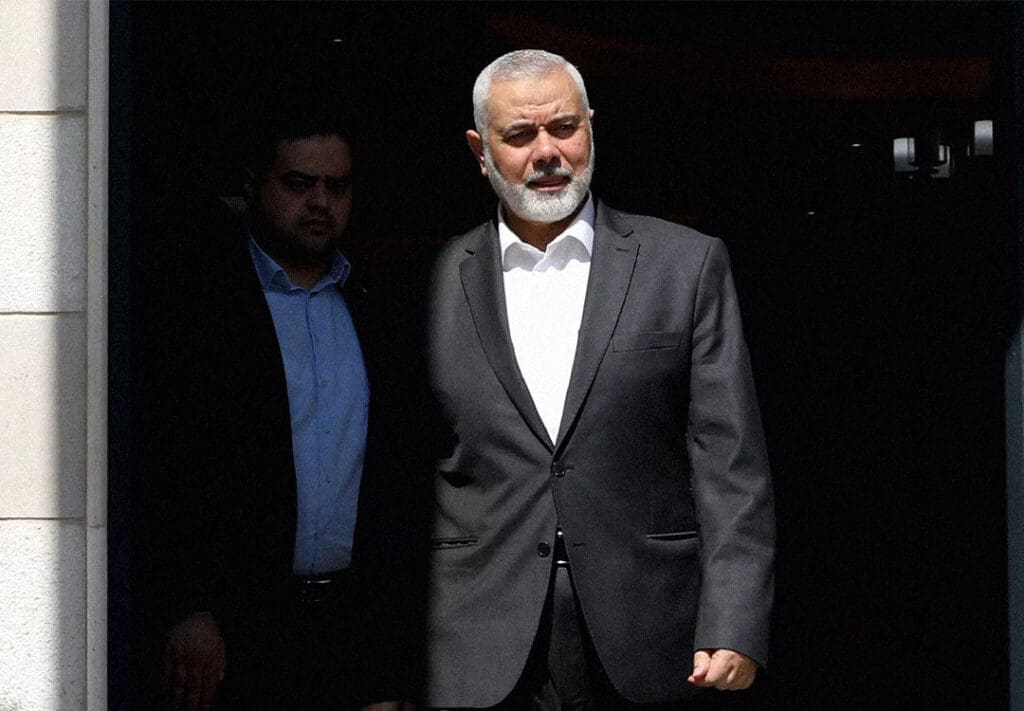On July 31, Hamas’ top political leader, Ismael Haniyeh, was killed in Tehran while attending the inauguration of incoming President Masoud Pezeshkian. The assassination came hours after Israel launched a drone strike in Beirut, killing the high-ranking Hezbollah military commander Fuad Shukr and others. The pair of assassinations come amid mounting regional tensions as Israel’s ongoing genocide in Gaza nears 300 days. In this interview with Afkār, non-resident fellow Mouin Rabbani, an expert on the Middle East and the Arab-Israeli conflict, analyzes the fallout from these events.
1. What significance could Haniyeh’s assassination have on the trajectory of the war on Gaza and the ceasefire-hostage negotiations?
Clearly, killing the leader in charge of the Palestinian negotiating team was designed to scuttle the negotiations and ensure they don’t result in an agreement that Israel’s leadership does not want. This was, in my view, one of Israel’s primary motivations, after it was becoming increasingly clear that Israel formed the main—if not only—obstacle to the conclusion of negotiations based on an initiative that the United States presented as one formulated by Israel.
2. Given the fact that this assassination took place in Iran’s capital while Haniyeh was on an official visit, how do you expect Tehran will react? Will it bring regional war closer to fruition?
I think the location of the assassination is as significant as the assassination itself. Israel has made it very difficult for Iran not to respond, and to not respond directly as it did after the Israeli bombing of the Iranian diplomatic facility in Damascus in April. I think it’s quite clear Israel is seeking a direct confrontation with Iran, and doing so in the hope that it can draw the U.S. directly into a confrontation with Iran.
3. Haniyeh’s assassination occurred mere hours after Israel killed the senior Hezbollah figure, Fuad Shukr, in Beirut. What do you think Israel’s strategic goal or intentions are here, and how might Hezbollah react given tensions were already so high between the two sides?
With hindsight, yesterday’s developments may come to be seen as the Middle East’s Sarajevo moment (when the assassination of Archduke Franz Ferdinand in 1914 sparked World War I). Responding to such questions is by definition speculative, but it seems incontrovertible that Israel’s objectives went well beyond assassinating specific individuals and was designed to provoke a much broader regional conflagration. Given its military failures in Gaza, I suspect Israel’s leaders have come to the conclusion that it is time to create conditions for direct U.S. military engagements. In President Biden, they may well have found the perfect candidate.


